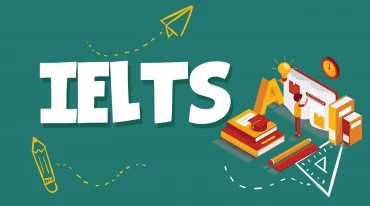
- 357 Lê Hồng Phong, P.2, Q.10, TP.HCM
- Hotline 1: 1900 7060
Hotline 2: (028) 3622 8849
Bài tập IELTS Reading: As More Tech Start-Ups Stay Private, So Does the Money - Phân tích từ vựng
Cùng diễn đàn giải một bài tập IELTS Reading với dạng bài điền từ vào chỗ trống và phân tích các từ vựng mới có trong bài nhé!
Not long ago, if you were a young, brash technologist with a world-conquering start-up idea, there was a good chance you spent much of your waking life working toward a single business milestone: taking your company public.
Though luminaries of the tech industry have always expressed skepticism and even hostility toward the finance industry, tech’s dirty secret was that it looked to Wall Street and the ritual of a public offering for affirmation — not to mention wealth.
But something strange has happened in the last couple of years: The initial public offering of stock has become déclassé. For start-up entrepreneurs and their employees across Silicon Valley, an initial public offering is no longer a main goal. Instead, many founders talk about going public as a necessary evil to be postponed as long as possible because it comes with more problems than benefits.
“If you can get $200 million from private sources, then yeah, I don’t want my company under the scrutiny of the unwashed masses who don’t understand my business,” said Danielle Morrill, the chief executive of Mattermark, a start-up that organizes and sells information about the start-up market. “That’s actually terrifying to me.
Silicon Valley’s sudden distaste for the I.P.O. — rooted in part in Wall Street’s skepticism of new tech stocks — may be the single most important psychological shift underlying the current tech boom. Staying private affords start-up executives the luxury of not worrying what outsiders think and helps them avoid the quarterly earnings treadmill.
It also means Wall Street is doing what it failed to do in the last tech boom: using traditional metrics like growth and profitability to price companies. Investors have been tough on Twitter, for example, because its user growth has slowed. They have been tough on Box, the cloud-storage company that went public last year, because it remains unprofitable. And the e-commerce company Zulily, which went public last year, was likewise punished when it cut its guidance for future sales.
Scott Kupor, the managing partner at the venture capital firm Andreessen Horowitz, and his colleagues said in a recent report that despite all the attention start-ups have received in recent years, tech stocks are not seeing unusually high valuations. In fact, their share of the overall market has remained stable for 14 years, and far off the peak of the late 1990s.
That unwillingness to cut much slack to young tech companies limits risk for regular investors. If the bubble pops, the unwashed masses, if that’s what we are, aren’t as likely to get washed out.
Private investors, on the other hand, are making big bets on so-called unicorns — the Silicon Valley jargon for start-up companies valued at more than a billion dollars. If many of those unicorns flop, most Americans will escape unharmed, because losses will be confined to venture capitalists and hedge funds that have begun to buy into tech start-ups, as well as tech founders and their employees.
The reluctance — and sometimes inability — to go public is spurring the unicorns. By relying on private investors for a longer period of time, start-ups get more runway to figure out sustainable business models. To delay their entrance into the public markets, firms like Airbnb, Dropbox, Palantir, Pinterest, Uber and several other large start-ups are raising hundreds of millions, and in some cases billions, that they would otherwise have gained through an initial public offering.
“These companies are going public, just in the private market,” Dan Levitan, the managing partner of the venture capital firm Maveron, told me recently. He means that in many cases, hedge funds and other global investors that would have bought shares in these firms after an I.P.O. are deciding to go into late-stage private rounds. There is even an oxymoronic term for the act of obtaining private money in place of a public offering: It’s called a “private I.P.O.”
The delay in I.P.O.s has altered how some venture capital firms do business. Rather than waiting for an initial offering, Maveron, for instance, says it now sells its stake in a start-up to other, larger private investors once it has made about 100 times its initial investment. It is the sort of return that once was only possible after an I.P.O.
But there is also a downside to the new aversion to initial offerings. When the unicorns do eventually go public and begin to soar — or whatever it is that fantastical horned beasts tend to do when they’re healthy — the biggest winners will be the private investors that are now bearing most of the risk.
It used to be that public investors who got in on the ground floor of an initial offering could earn historic gains. If you invested $1,000 in Amazon at its I.P.O. in 1997, you would now have nearly $250,000. If you had invested $1,000 in Microsoft in 1986, you would have close to half a million. Public investors today are unlikely to get anywhere near such gains from tech I.P.O.s. By the time tech companies come to the market, the biggest gains have already been extracted by private backers.
Just 53 technology companies went public in 2014, which is around the median since 1980, but far fewer than during the boom of the late 1990s and 2000, when hundreds of tech companies went public annually, according to statistics maintained by Jay Ritter, a professor of finance at the University of Florida. Today’s companies are also waiting longer. In 2014, the typical tech company hitting the markets was 11 years old, compared with a median age of seven years for tech I.P.O.s since 1980.
Over the last few weeks, I’ve asked several founders and investors why they’re waiting; few were willing to speak on the record about their own companies, but their answers all amounted to “What’s the point?”
Initial public offerings were also ways to compensate employees and founders who owned lots of stock, but there are now novel mechanisms — such as selling shares on a secondary market — for insiders to cash in on some of their shares in private companies. Still, some observers cautioned that the new trend may be a bad deal for employees who aren’t given much information about the company’s performance.
“One thing employees may be confused about is when companies tell them, ‘We’re basically doing a private I.P.O.,’ it might make them feel like there’s less risk than there really is,” said Ms. Morrill of Mattermark. But she said it was hard to persuade people that their paper gains may never materialize. “The Kool-Aid is really strong,” she said.
If the delay in I.P.O.s becomes a normal condition for Silicon Valley, some observers say tech companies may need to consider new forms of compensation for workers. “We probably need to fundamentally rethink how private companies compensate employees, because that’s going to be an issue,” said Mr. Kupor, of Andreessen Horowitz.
During a recent presentation for Andreessen Horowitz’s limited partners — the institutions that give money to the venture firm — Marc Andreessen, the firm’s co-founder, told the journalist Dan Primack that he had never seen a sharper divergence in how investors treat public- and private-company chief executives. “They tell the public C.E.O., ‘Give us the money back this quarter,’ and they tell the private C.E.O., ‘No problem, go for 10 years,’ ” Mr. Andreessen said.
At some point this tension will be resolved. “Private valuations will not forever be higher than public valuations,” said Mr. Levitan, of Maveron. “So the question is, Will private markets capitulate and go down or will public markets go up?”
If the private investors are wrong, employees, founders and a lot of hedge funds could be in for a reckoning. But if they’re right, it will be you and me wearing the frown — the public investors who missed out on the next big thing.
Questions 1-5
Complete the sentences below.
Write ONLY ONE WORD from the passage for each answer.
Write your answers in boxes 1-5 on your answer sheet.
1. Skepticism was always expected by the ___ of tech industry.
2. The new aversion to initial offerings has its ___ .
3. Selling shares on a secondary market is considered a ___ mechanism.
4. Workers' compensation might be an ___ .
5. The public investors who failed to participate in the next big thing might be the ones wearing the ___ .
ANSWER KEY
1. luminaries
2. downside
3. novel
4. issue
5. frown
TỪ VỰNG TRONG BÀI
Brash /bræʃ/ (adj): hỗn láo, thô lỗ ((of people) showing too much confidence and too little respect)
Luminary /ˈluː.mə.ner.i/ (n): người có ảnh hưởng lớn (a person who is famous and important in a particular area of activity)
Skepticism /ˈskep.tɪ.sɪ.zəm/ (n): thái độ hoài nghi (doubt that something is true or useful)
Hostility /hɑːˈstɪləti/ (n): thái độ thù địch (aggressive or unfriendly feelings or behaviour)
Affirmation /ˌæfərˈmeɪʃn/ (n): sự khẳng định, xác nhận (a definite or public statement that something is true or that you support something strongly)
Scrutiny /ˈskruː.t̬ən.i/ (n): sự xem xét kỹ lưỡng (the careful and detailed examination of something in order to get information about it)
Treadmill /ˈtred.mɪl/ (n): công việc hàng ngày buồn tẻ (any type of repeated work that is boring and makes you feel tired and seems to have no positive effect and no end)
Hedge /hedʒ/ (v): giới hạn (to limit something severely)
Spur /spɝː/ (v): thúc đẩy, khuyến khích (to encourage an activity or development or make it happen faster)
Nguồn: IELTS Up
THƯ VIỆN LIÊN QUAN

Reading là một trong bốn phần thi bắt buộc của bài thi IELTS, đây cũng được xem là phần thi thử thách nhất để chinh phục được band điểm cao. Hãy...

Bài viết cung cấp cho đọc giả Bài tập Reading part 3 - Chủ đề: Why fairy tales are really scary tales - Có đáp án

Bài viết cung cấp cho đọc giả Bài tập Reading part 2 - Chủ đề: The Desolenator: producing clean water - Có đáp án

Bài viết cung cấp cho đọc giả Bài tập Reading part 1 - Chủ đề: Henry Moore (1898-1986) - Có đáp án
Hoặc gọi ngay cho chúng tôi:
1900 7060
 | Chính sách bảo mật thông tin | Hình thức thanh toán | Quy định chung
| Chính sách bảo mật thông tin | Hình thức thanh toán | Quy định chung
Giấy chứng nhận đăng ký doanh nghiệp số 0310635296 do Sở Kế hoạch và Đầu tư TPHCM cấp.
Giấy Phép hoạt động trung tâm ngoại ngữ số 3068/QĐ-GDĐT-TC do Sở Giáo Dục và Đào Tạo TPHCM cấp